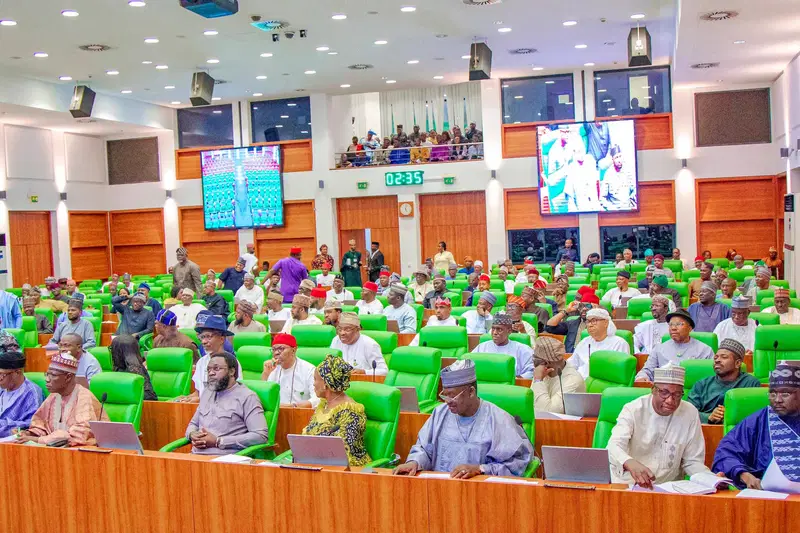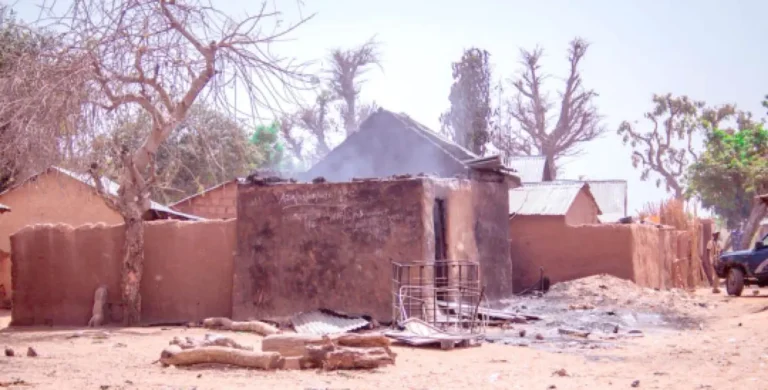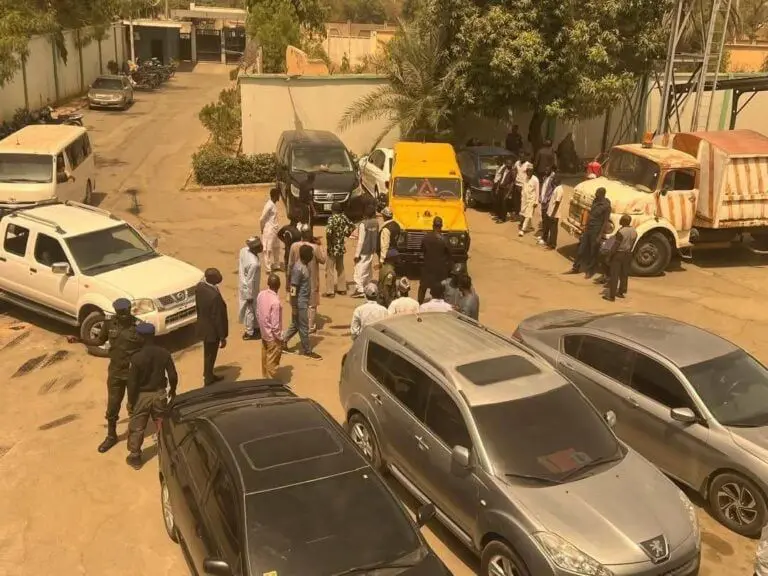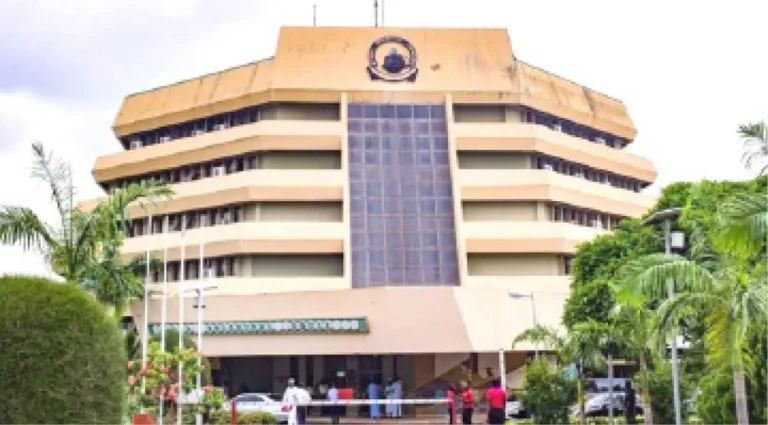
The House of Representatives, yesterday, held a special plenary session on Nigeria’s escalating insecurity, with lawmakers issuing some of the strongest self-indicting speeches heard in the chamber in recent years.
Members warned that the country was “slipping,” institutions failing, adding that parliament must take responsibility to rescue the nation.
Minority Leader of the House, Kingsley Chinda, who lamented that insecurity could not be addressed without unity and honesty, said: “Nigerians travel with fear, pray until their relatives arrive, and live in a country where government has failed in its primary duty.
“If we cannot protect the lives and property of Nigerians as enshrined in our constitution, are we worthy to continue to sit as a parliament?
“We cannot fight this battle without unity. Yes, there are religious killings. The answer is yes. But is that the major cause of insecurity? The answer is no. We must stop painting this problem with one brush,” he said.
Chinda identified political violence, porous borders, economic displacement, and extremist ideology as contributing factors, warning that politicians themselves have “imported people across our unprotected borders” for political gains.
He urged parliament to create a National Border Force and adopt state or community policing, saying “we do not have a border force in Nigeria. The time has come for us to create one, backed by technology.”
He also demanded a closed-door session with all security chiefs where “we must tell them the feelings of Nigerian people. My heart is heavy for Nigeria.”
Also speaking on the insecurity in the country, the Deputy Speaker , Benjamin Kalu, warned that the country’s security breakdown required legislative, not military solutions.
“Nigeria possesses strong deterrence laws. What we suffer is weak institutional implementation, inadequate funding, lack of transparency and misalignment between policy and execution,” he said.
Kalu outlined a five-point framework, including situational analysis, institutional weaknesses, legislative gaps, priority reforms and anticipated objections.
He listed worsening banditry, the rise of parallel governance structures, kidnapping of schoolchildren and worshippers, and international scrutiny, including the U.S. designation of Nigeria as a “country of particular concern.”
On legislative gaps, he faulted the practice of negotiating with bandits.
“Despite life imprisonment and death penalty for kidnapping, the practise continues because government entities negotiate with bandits and pay ransom. Amnesty deals embolden these groups,” Kalu said.
He called for parliament to enact laws banning “unstructured ransom negotiations,” enforce transparent police funding, and develop a legal framework for military drone operations.
“A police force that cannot plan beyond the next pay cheque cannot protect this nation,” he warned.
Kalu also backed decentralised policing, adding that “state police is not a silver bullet, but a necessary evolution of our federal system.”
He insisted Nigeria must defend its sovereignty while meeting global expectations.
“Nigeria will never cede sovereignty to external actors but sovereignty demands responsibility,” he added.
According to the Leader of the House, Julius Ihombvere, “Nigeria now records over 24,000 violent incidents a year.
“Today, we face multifaceted security threats. Mortalities remain high, reaching up to 9,500 in 2024. Nigeria is ranked the sixth most impacted country by terrorism globally.
Citing national security data, he warned that: “over 24,000 violent incidents were recorded between December 2023 and November 2024.
”Banditry has evolved into organised terrorism in the North-West. Boko Haram and ISWAP continue to operate with resilience in the North-East. Over 1.5 million Nigerians remain in IDP camps, despite military offensives.”
He acknowledged government efforts troop deployments, technology acquisition, airstrikes, and mass surrenders but said they were insufficient without a renewed non-kinetic strategy.
“Some communities and individuals are involved in encouraging insecurity. Arrests, prosecutions, rehabilitation and reintegration must be strengthened,” Ihombvere said.
He also stressed that insecurity in Nigeria threatened stability across West Africa.
Speaking also on the security situation, Ado Doguwa, warned that “Nigeria is operating under a complete war against humanity.
“I am of the APC extraction from Kano State. I say this because I don’t want anyone out there to mistake me for an opposition. I am speaking today as an APC member, but with a particular concern,” he said.
Doguwa, who acknowledged government efforts but delivered a blunt verdict, said: “Yes, the government is doing its best. The security agencies are doing their best. But their best is not good enough.”
He described the state of insecurity as “horrific,” “tragic,” “devastating,” and “unspeakable,” particularly across northern communities which, he said, now lived “in serious tension, fear and despair.
Doguwa added: “Today, Nigeria is operating under a complete war against humanity. War in the north, war in the west, war in the east, and war down south.
“If the government is not prepared to do the right thing, I urge this House to stand up and pay the supreme cost, shut this House down and declare a legislative emergency until the right thing is done.”
According to him, there is no point legislating when the country is “running in blood and tears,” with farmers unable to go to their farms, traders afraid to go to markets and worshippers unsafe in churches and mosques.
Doguwa also lamented rising kidnappings in his constituency, comparing the once-famed Kogor Game Reserve to “an extension of Sambisa Forest.”
Victor Nwokolo, leader of the South-South in the House, while offering a grim account of killings, kidnappings and police helplessness in Delta and neighbouring states,.said the situation was bad.
“You go to the police, they say their vehicles are never around because they don’t have what it takes to match the criminals.
“The indigenous people driving Okada or Keke are also part of our problem. They give information to kidnappers, they buy their food, they run errands for them,” the lawmaker said.
Responding to Doguwa’s call for a legislative shutdown, the Deputy Speaker of the House, Benjamin Kalu, cautioned against such declarations, warning that they could be misinterpreted by the public.
“No problem is too big for the parliament to handle. We will not shut the parliament. We are the solution hope of the nation,” he said.
VANGUARD.




